 Nathan Coley
Nathan Coley
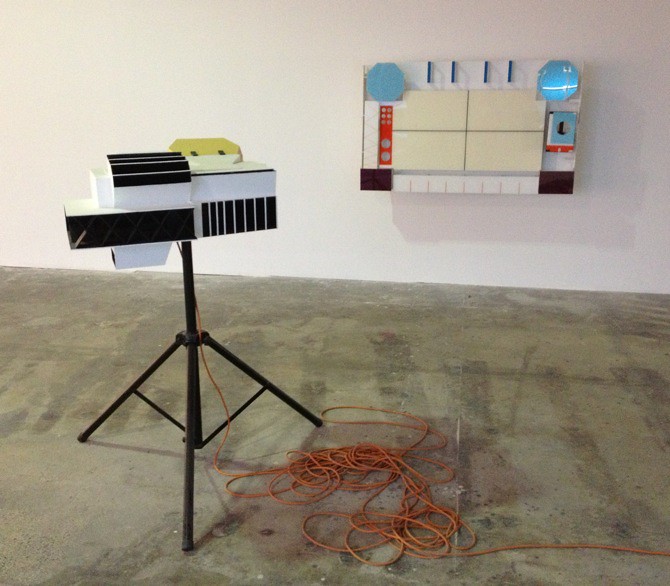 Adam Kokesch
Adam Kokesch
 Zbigniew Libera
Zbigniew Libera
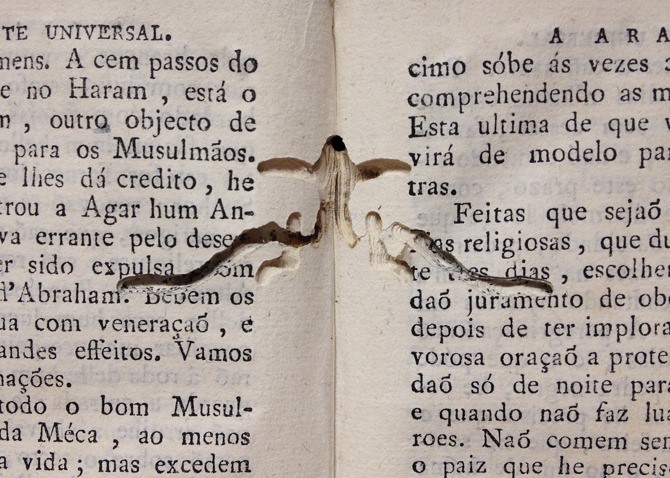 Carla Filipe
Carla Filipe
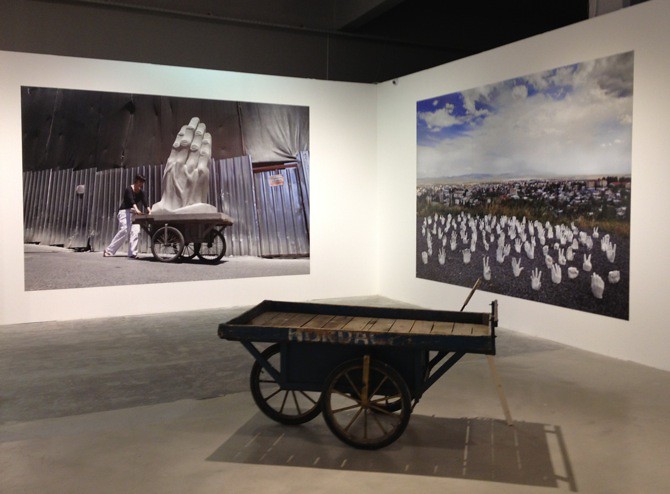 Wouter Osterholt & Elke Uitentuis
Wouter Osterholt & Elke Uitentuis
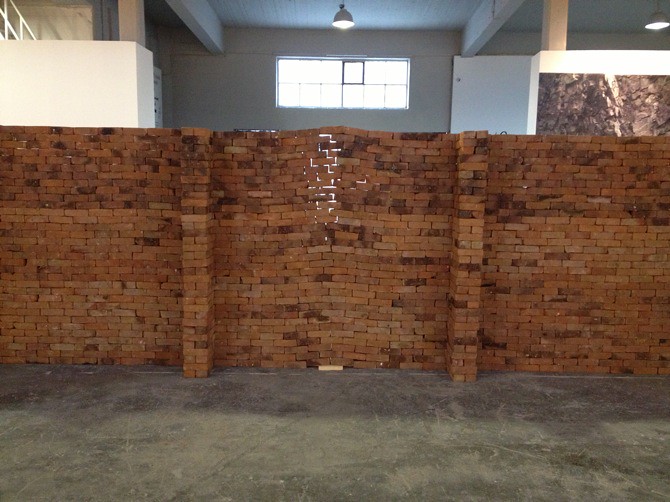 Jorge Mendez Blake
Jorge Mendez Blake
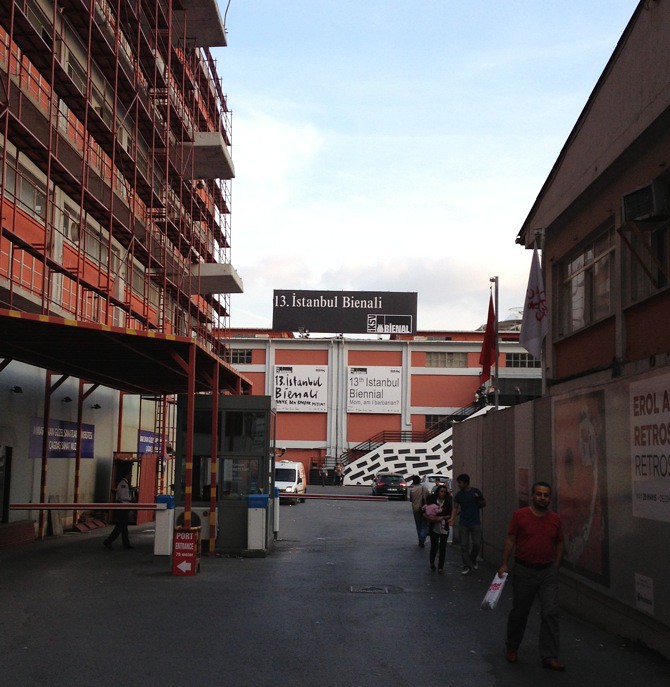 Entrance to Antrepo no.3
Entrance to Antrepo no.3 All images: Courtesy the artists and/or their galleries; photos by artfridge
Since the severe demonstrations in June at Taksim Square, Istanbul became one of the most prominent places of civil revolution. While outside Turkey, the riots have been declared as intellectual, even aesthetically artistic revolts – a liberation from religious dogmas, from gentrification, from suppression and governmental power – inside Turkey, the riots were condemned or concealed. Therefore the 13th edition of the Istanbul Bienali was expected respond to the country's political situation and to use the international attention to manifest a statement of freedom. But instead of a statement, we get a question: The title "MOM, AM I A BARBARIAN?", which is a quote that the curator Fulya Erdemci borrowed from the Turkish poet Lale Müldür, highlights the latent feeling that the Istanbul Bienale does not at all have as much freedom, as the individual protesters at Gezi-Park. These, in turn, ironically reacted to the exhibition with signs saying " MOM, AM I HUMAN".
One has to give Erdemci credit for being almost alarmingly predictive: more than a half year before the riots started, she created a curatorial concept that focused on the democratization of the public domain, on the question of who owns the city and on architectural borders. Initially the exhibition concept included Gezi-Park as one location of the bienali. By this time, nobody could have known that far-reaching street protests would anticipate any creative idea presented in the secure walls of an institutional white cube. Eventually Erdemci decided not to interfere in the scene of revolution and withdrew the park as a location of art. But while the free admission to each of the five exhibition spaces grants a larger audience, the lack of explanatory wall-texts makes it hard to access the language of contemporary art to many visitors. Wrapped in subtle art-codes – from Gordon Matta-Clark's 'Conical Intersect' (1975) piece in Paris, to Mika Rottenberg's great nonsense-labour video 'Squeeze' (2010) – lots of the represented works seemed redundant, compared to the radical movements outside.
In two of the five exhibition spaces the comparison to the real world – intended or not – is a part of the representation: At the four-floored ARTER space and at SALT, which are both in the middle of Beyoğlu's most crowded shopping street and very close to Takism Square. ARTER has a strong focus on conceptual and photographic art. SALT, on the other hand, is dominated by the room-filling installation 'Market or Die' (2013) by the Argentinian artist Diego Bianchi. He created a giant environment, which simply copies the chaotic commerce atmosphere from the other side of the large shop windows. Here, more than at any other Bienali space, the juxtaposition of reality and artistic statement seems ridiculous.
It clearly is a dilemma: Why should art need to battle itself with reality? Some say that now is exactly the perfect moment for a political exhibition in Istanbul – I say its the absolute worst. No matter what and who would be shown within institutional walls, in times like these it would always seem exclusive and elitist. The main location Antrepo No.3, which lies in an industrial building right at the Bosporus, fortunately makes use of this dilemma. It is the only space where art is given a sovereignty – where the exclusive location protects a political manifest. Here is the screening of 'Wonderland' (2013), a radical and brutal document of anger by Halil Altındere. Altındere is one out of 10 participating Turkish artists, the other 78 are imported.
Antrepo No.3 is also the place where Nathan Coley's wall sculpture 'Gathering of Strangers' (2007) glows in large colourful letters and could be understood as a slogan for both, the visitors of the Bienali and the protesters at Gezi-Park. The entrance of the building is visually blocked by a large brick wall by Mexican artist Jorge Mendez Blake. Not later than here it is obvious that the 13. Istanbul Bienali intends to separate the inside (art) and the outside (reality) from each other – for reasons of protection and for reasons of respect.
14 September – 20 October.
Antrepo no.3;
Meclis-i Mebusan Caddesi
Liman İşletmeleri Sahası
34433 Tophane
Galata Greek Primary School;
Kemeraltı Cad. No: 49
34425 Karaköy Beyoğlu
ARTER;
Asmalı Mescit Mah.
İstiklal Caddesi No: 211
34433 Beyoğlu
SALT Beyoğlu;
Asmalı Mescit Mah.
İstiklal Cad. No:136
34430 Beyoğlu
5533;
İMÇ 5.Blok
5533 Unkapanı
The biennial venues Antrepo no.3, Galata Greek Primary School, ARTER and SALT Beyoğlu are open all weekdays except Mondays through 14 September – 20 October. 5533 is closed on Sundays.
Antrepo no.3, Galata Greek Primary School, ARTER and 5533 can be visited between 10:00 - 19:00. SALT Beyoğlu can be visited between 12:00 - 20:00.
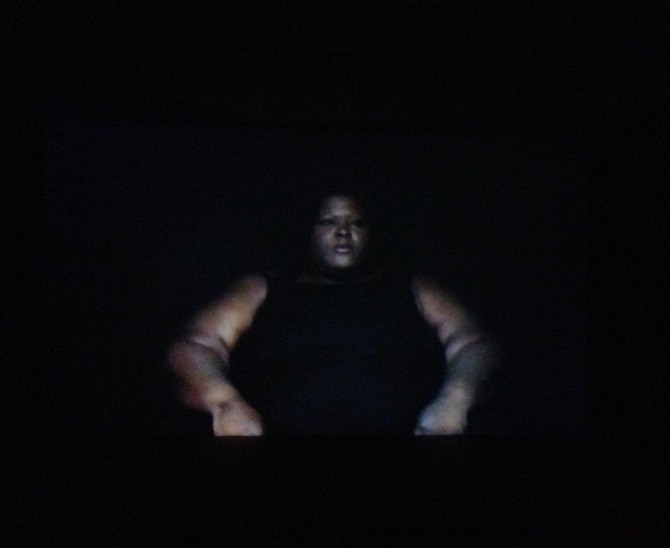 Mika Rottenberg
Mika Rottenberg
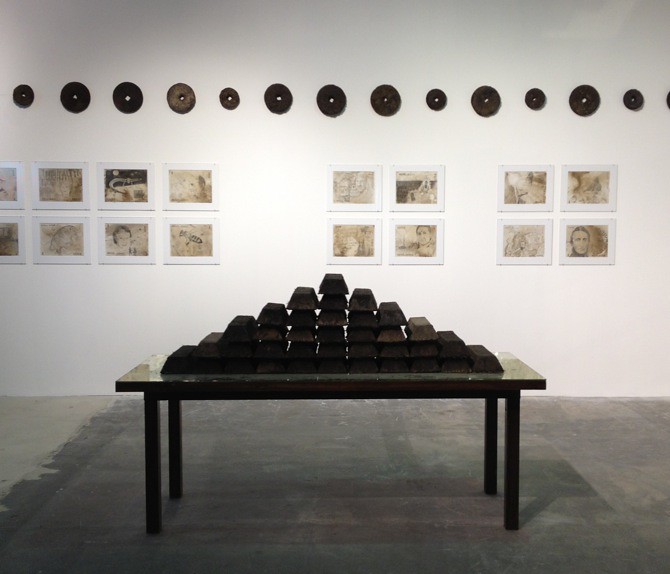 Claire Pentecost
Claire Pentecost
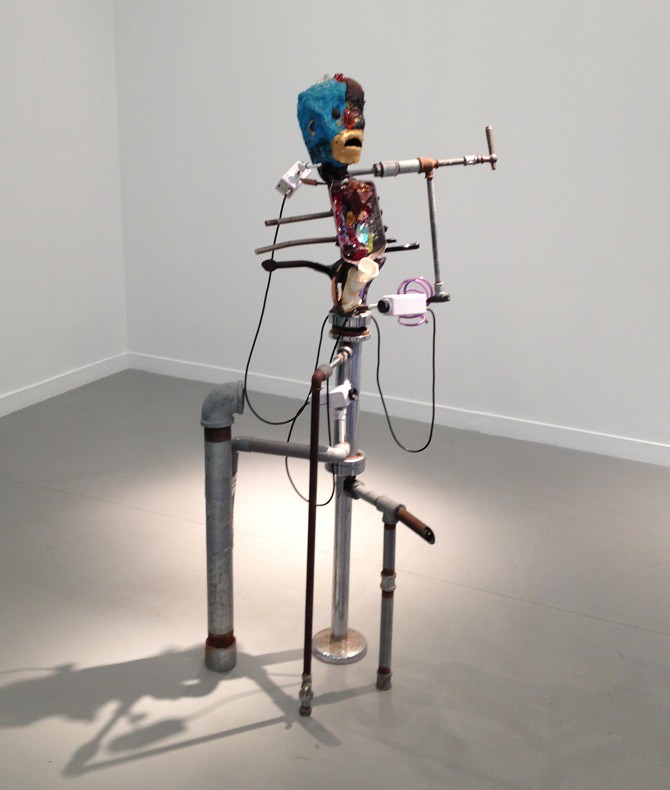 Jimmie Durham
Jimmie Durham
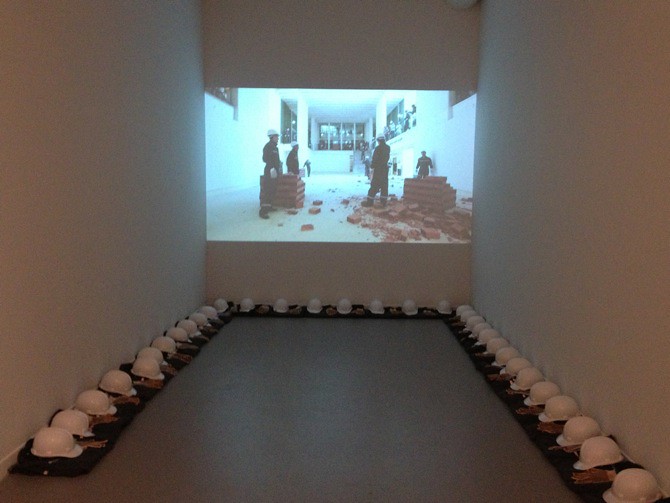 Hector Zamora
Hector Zamora
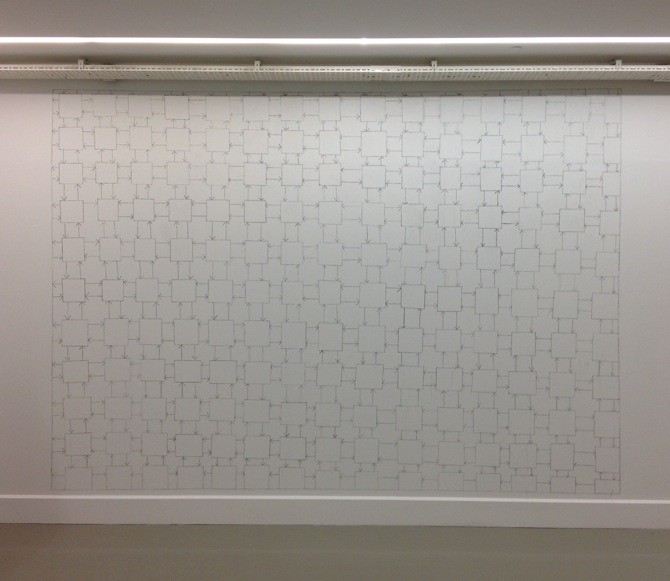 Stephen Willats
Stephen Willats
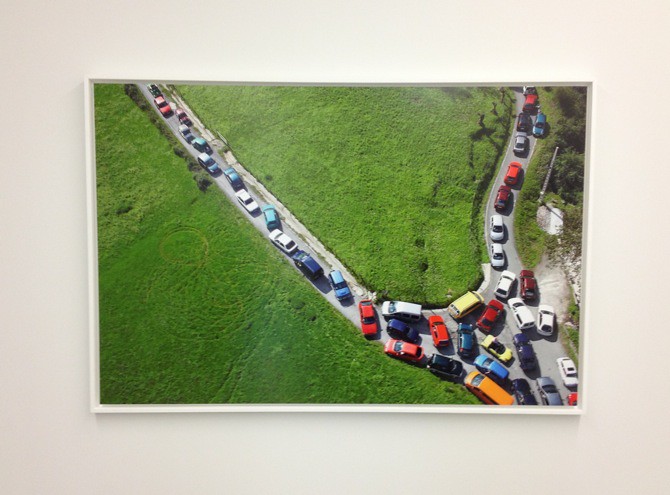 Maider Lopez
Maider Lopez
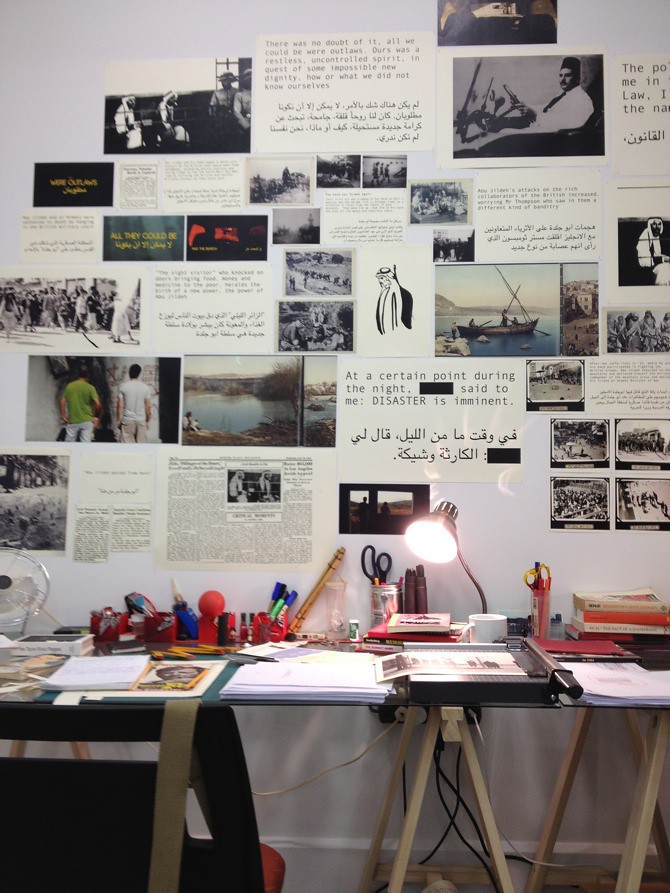 Basel Abbas & Ruanne Abou-Rahme
Basel Abbas & Ruanne Abou-Rahme
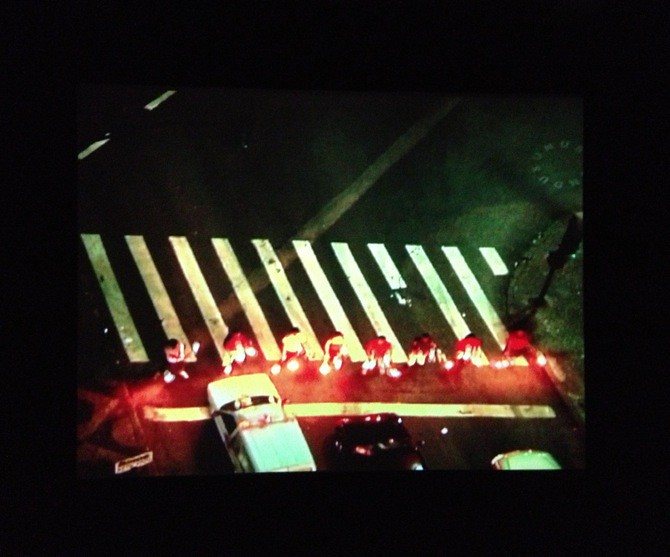 Cinthia Marcelle
Cinthia Marcelle
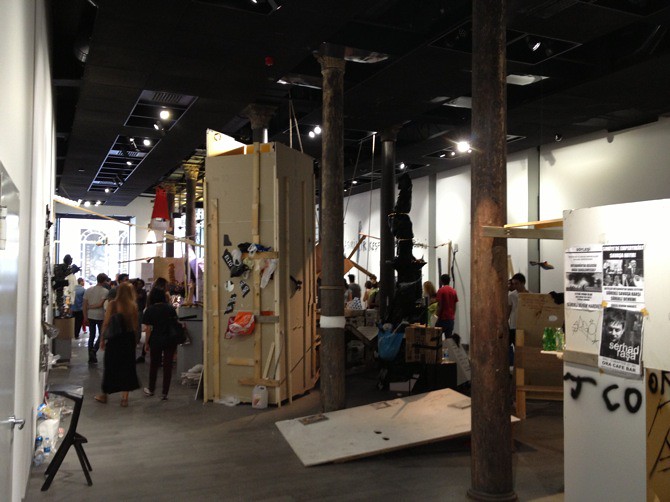 Diego Bianchi at SALT space
Diego Bianchi at SALT space
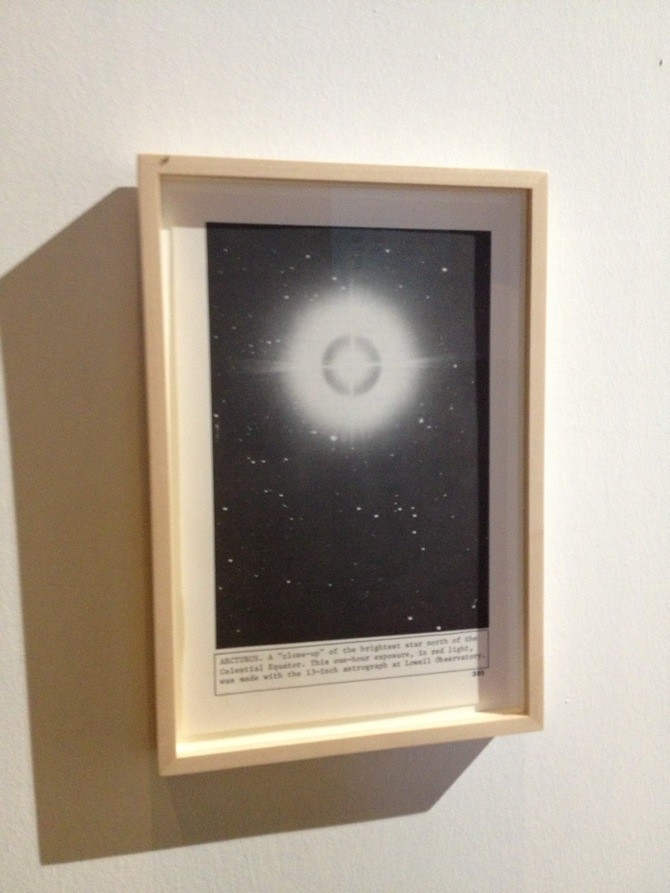 Lutz Bacher
Lutz Bacher
All images: Courtesy the artists and/or their galleries; photos by artfridge
